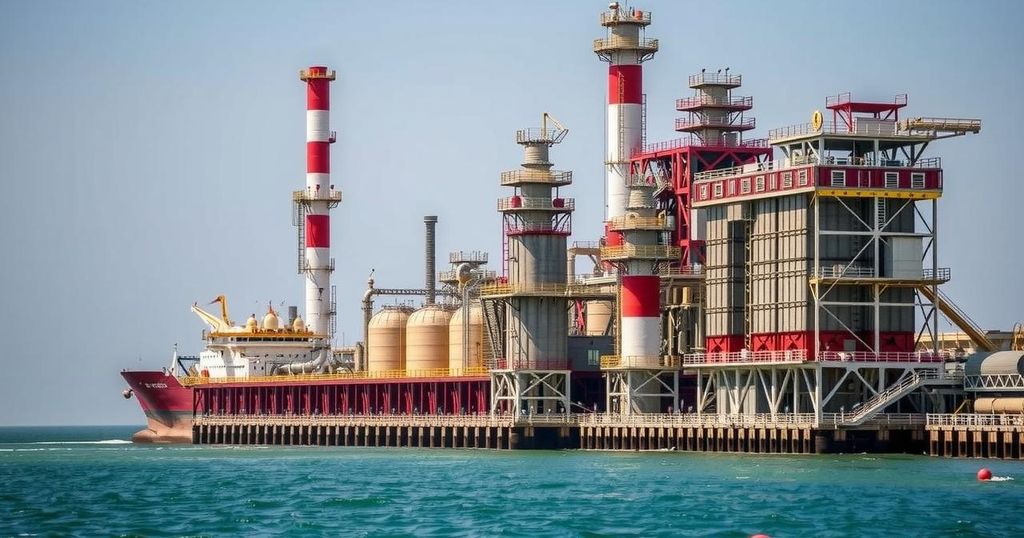A key oil refinery in Zawiya, Libya, has suspended operations due to armed clashes causing significant damage and fires. The National Oil Corporation has declared force majeure while emergency services manage the incident. Despite the closure, fuel supplies to local stations remain secure, although one person has reportedly died and ten injuries occurred in the conflict.
A significant oil refinery in western Libya has halted its operations following armed conflicts that erupted early on Sunday, resulting in fires at several storage tanks, as reported by the National Oil Corporation (NOC). The refinery, located in Zawiya and about 45 kilometers from Tripoli, is crucial as it serves as the sole fuel supplier for the local market. The NOC has declared a state of force majeure due to substantial damage sustained from gunfire, leading to serious fires.
Social media footage depicted numerous burning oil tanks at the facility. The NOC acknowledged that despite the ongoing clashes, emergency responders successfully managed the fires and gas leaks to prevent further hazards. Reports indicate that one individual has perished and approximately ten others have sustained injuries during the altercations, though official confirmations have yet to be issued.
Khaled Ghulam, a spokesperson for the NOC, assured the public via Libya al-Ahrar television that fuel supplies remain secure for Zawiya and Tripoli, confirming that deliveries to service stations would continue uninterrupted. Established in 1974, the Zawiya refinery is the second-largest in Libya, boasting a refining capacity surpassing 120,000 barrels per day (bpd).
Zawiya, Libya’s third-largest city in the Tripolitania region, has witnessed intense battles between rival armed factions. The recent violence resulted in the temporary closure of educational institutions and affected local travel routes, although the road linking Zawiya to Tripoli has since reopened. The NOC’s declaration of force majeure signifies exceptional circumstances that protect it from penalties related to unmet oil delivery contracts.
Despite Libya’s vast hydrocarbon resources, the nation continues to navigate challenges stemming from prolonged conflict following the 2011 uprising against long-standing leader Muammar Gaddafi. Previously, oil production levels, which stabilized at approximately 1.2 million bpd for a decade, have recently seen improvements, reaching around 1.4 million bpd as of early December, though pre-uprising levels were higher at 1.5 to 1.6 million bpd.
The situation in Libya remains precarious as the nation grapples with ongoing instability following its civil unrest that began in 2011. The Zawiya refinery, pivotal for the local economy, has been affected by armed conflicts that are commonplace in the region. Although Libya possesses the largest oil reserves in Africa, political discord and social demands often hinder oil production and distribution, resulting in frequent disruptions. The declaration of force majeure by the NOC exemplifies the legal recourse available during such emergencies, allowing the company to safeguard against liabilities incurred from failing oil contract obligations.
In summary, the suspension of operations at the Zawiya oil refinery highlights the ongoing security challenges that Libya faces amid its attempts to stabilize its oil production sector. The armed clashes have resulted in significant damage, prompting the NOC to invoke a state of force majeure, while emergency services have managed to control the ensuing fires. While the refinery’s closure affects local fuel supply, officials have assured citizens of continuity in service despite the precarious situation.
Original Source: jordantimes.com






